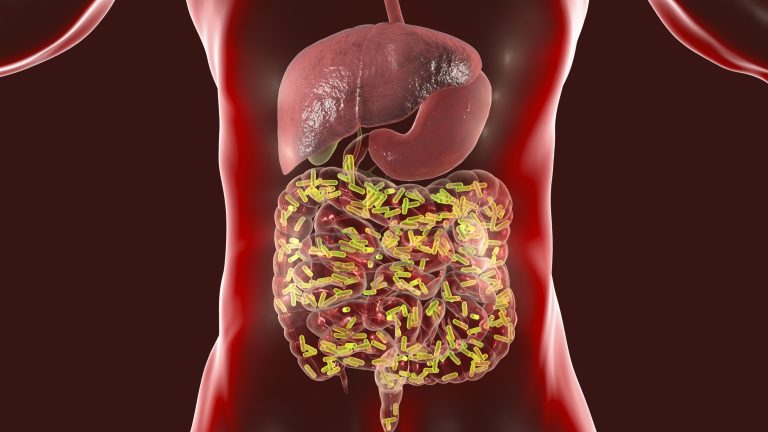
Psychological stress has adverse effects on various human diseases, including those of the cardiovascular system. However, the mechanisms in which stress causes disease activity remains unclear. Using vaso-occlusive episodes (VOEs) of sickle cell disease (SCD) as a vascular disease model, researchers at Albert Einstein College of Medicine discovered that the gut plays a critical role in provoking episodes of VOEs.
Their findings are published in Immunity in a paper titled “The Gut Microbiome Regulates Psychological-Stress-Induced Inflammation” and led by Paul S. Frenette, MD, professor of medicine and of cell biology and chair and director of the Ruth L. and David S. Gottesman Institute for Stem Cell and Regenerative Medicine Research at Einstein.
SCD is a group of inherited red blood cell disorders. In a healthy person, red blood cells are round, and they move through small blood vessels to carry oxygen to all parts of the body. However, in someone who has SCD, the red blood cells become hard and sticky and look like a C-shaped farm tool called a “sickle.” Painful episodes can occur when sickled red blood cells, which are stiff and inflexible, get stuck in small blood vessels. These VOEs deprive tissues and organs, such as the lungs, kidneys, spleen, and brain, of oxygen-rich blood and can lead to organ damage. No therapies can reverse VOEs and, over time, they cause significant damage to internal organs.
Using a mouse model, the researchers found that the path to VOEs begins in the brain. Stress promotes the secretion of glucocorticoid hormones in the brain, which make their way to the gut and increase its permeability. This permeability allows segmented filamentous bacteria (SFB)—a type of beneficial gut bacteria in mice—to interact with Th17 helper immune cells in the lining of the gut. The SFB stimulate those immune cells to produce pro-inflammatory molecules, which enter the circulation and promote the aging and accumulation of neutrophils.
The researchers observed SCD mice and healthy mice that were subjected to psychological stress. However, lethal VOEs occurred only in the sickle-cell disease mice. “Healthy mice don’t have sickled blood cells and therefore don’t suffer the ill effects caused by the buildup of aged neutrophils,” Frenette explained
“Importantly, we found we could markedly reduce stress-induced VOEs in mice through several different interventions: inhibiting the synthesis of glucocorticoids, depleting SFB, or blocking the inflammatory molecules induced by these bacteria,” Frenette noted. “Each of those actions could potentially limit the impact of psychological stress on people with SCD.”
While SFB are found only in rodents, some evidence indicates that similar beneficial bacteria in the human gut can also induce Th17 immune cells to produce inflammatory molecules.
The researchers hope to investigate further whether there is any correlation between the abundance of these bacteria in patients with sickle-cell disease and the frequency or severity of VOEs that affect them.
Because there are no therapies for VOEs, life expectancy for those with severe SCD is 20 to 30 years shorter than for those without the disease. Their findings may lead to novel solutions for treating this painful and deadly disease.













